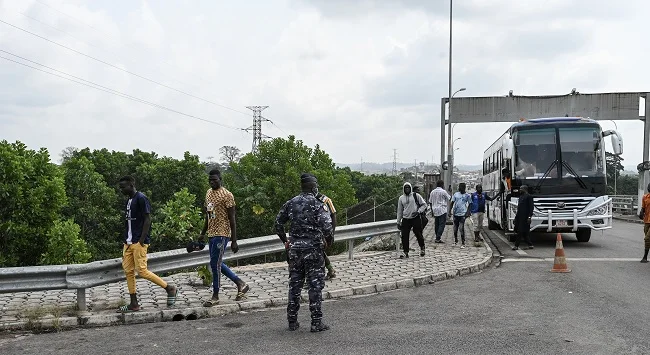On March 8, 2023, Côte d’Ivoire announced the reopening of its land borders with Burkina Faso, Ghana, Guinea, Liberia, and Mali, effective at midnight, following a cabinet meeting.
The borders had been closed since March 22, 2020, at the onset of the COVID-19 pandemic to curb the virus’s spread.
While sea and air borders were reopened within months to support cocoa and coffee exports, land borders remained shut, forcing millions of cross-border residents to use clandestine routes to travel.
Managing Clandestine Crossings
Government spokesman Amadou Coulibaly stated, “Today we have the clandestine crossing routes under control,” urging travelers to use official crossing points.
The decision comes as Côte d’Ivoire seeks to better manage the influx of 8,700 refugees fleeing violence and insecurity in Burkina Faso, ensuring proper identification and processing at formal border points.
Economic and Employment Impacts
The border closure severely disrupted the transport sector, leaving many drivers unemployed.
Daouda Bamba, secretary general of the Union of West African Drivers (Ucrao), said that the reopening will revive the sector, with approximately 300 companies set to rehire 24,000 workers.
“We must rebuild the workforce in lorry depots, because drivers had found themselves out of work,” Bamba said, highlighting the need to restore operations gradually.
Côte d’Ivoire’s COVID-19 Response
Côte d’Ivoire recorded a relatively low COVID-19 death toll of 800 out of a population of 27 million.
In February 2023, President Alassane Ouattara praised the country’s pandemic management and announced a progressive easing of restrictions, including the lifting of the health state of emergency.
The border reopening aligns with these efforts to normalize economic and social activities.
Regional and Humanitarian Context
The reopening facilitates regional mobility, critical for West African trade and communities.
The influx of Burkinabé refugees underscores ongoing regional instability, particularly due to jihadist violence in Burkina Faso.
By controlling border crossings, Côte d’Ivoire aims to balance humanitarian needs with security, while revitalizing its transport sector and regional economic ties.






